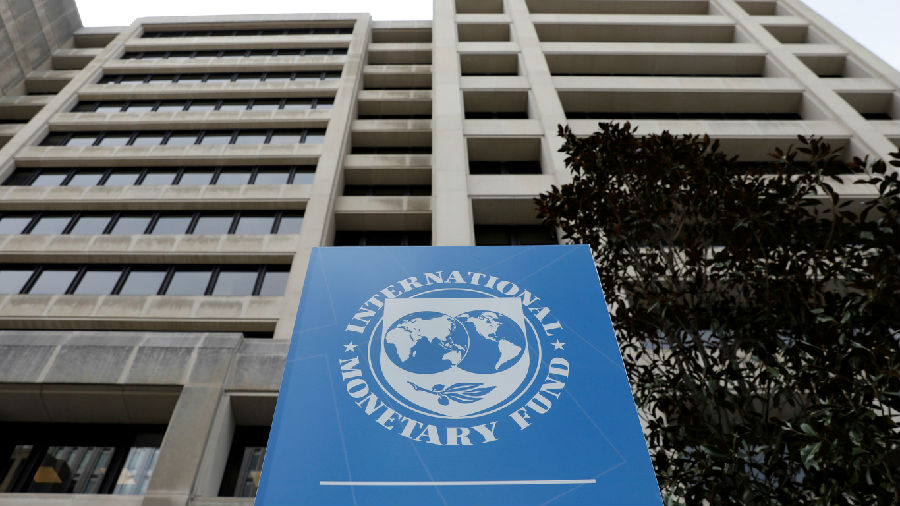來源于《社論》版塊
The IMF
國際貨幣基金組織
Break the glass
擊破玻璃
Emerging markets are in turmoil. The IMF must step in to help
新興市場一片混亂。國際貨幣基金組織必須介入幫助
Emerging markets are battling a financial crisis as well as a public-health emergency. Since late January foreign investors, desperate to shed risk, have been withdrawing their cash from poor countries. At the same time falling global trade, depressed commodities prices and vanishing tourists have put export revenues, and hence the supply of foreign currency, into free fall. This has left many countries struggling to pay for imports and to service their dollar-denominated debts, let alone fund emergency health or economic programmes. Over 90 countries have approached the IMF, the lender of last resort for governments, to ask for help.
新興市場正在應對金融危機和突發公共衛生事件。自1月底以來,急于規避風險的外國投資者一直在從貧困國家撤出資金。與此同時,全球貿易下滑、大宗商品價格下跌和游客減少,導致出口收入以及外匯供應大幅下降。這使得許多國家難以支付進口和償還以美元計價的債務,更不用說為緊急衛生或經濟計劃提供資金了。超過90個國家已經向政府的最后貸款人——國際貨幣基金組織尋求幫助。

The fund will need to respond on an unprecedented scale. The $96bn investors have already withdrawn from emerging-market stocks and bonds dwarfs past capital outflows, according to the Institute of International Finance, an industry group. So far this year the Brazilian real, the Mexican peso and the South African rand have lost nearly a quarter of their value against the dollar. Though few countries have sounded the alarm in public, the fund estimates that emerging markets will need at least $2.5trn over the course of the pandemic.
國際貨幣基金組織將需要以前所未有的規模做出反應。根據行業組織國際金融協會的數據,960億美元的投資者已經從新興市場股市和債市撤資,令過去的資本外流相形見絀。今年迄今為止,巴西雷亞爾、墨西哥比索和南非蘭特兌美元匯率已下跌近四分之一。盡管很少有國家公開發出警告,但據國際貨幣基金組織估計,在這次疫情期間,新興市場將需要至少2.5萬億美元。
Some of that help is coming from America’s Federal Reserve. It is running “swap lines” with a select few central banks, which have so far borrowed about $400bn while posting their own currencies as collateral. The Fed is also allowing most central banks to temporarily exchange any Treasuries that they hold for dollars. But among emerging-market central banks only Brazil, Mexico, Singapore and South Korea are included in the swap lines, and few poor countries have a ready supply of Treasuries. So most of the burden will fall on the IMF which, unlike the Fed, cannot create dollars at will. The fund says it has about $1trn on tap, about a fifth of which is already committed. Even this may not be enough for the job if large economies like Nigeria, South Africa or Turkey join the legions of small countries seeking help. Another problem is that a big chunk of the fund’s resources is borrowing from its members that must be reauthorised this year, creating uncertainty.
其中一些幫助來自美聯儲。美聯儲正在與少數幾家央行進行“互換協議”,這些央行迄今已借入約4000億美元,同時將本幣作為抵押品。美聯儲還允許大多數央行暫時將持有的美國國債換成美元。但在新興市場國家的央行中,只有巴西、墨西哥、新加坡和韓國被納入了貨幣互換協議,而且幾乎沒有貧窮國家有現成的國債供應。因此,大部分負擔將落在國際貨幣基金組織身上。與美聯儲不同,國際貨幣基金組織不能隨意創造美元。國際貨幣基金組織表示,現有大約1萬億美元的資金可供隨時使用,其中約五分之一已經到位。如果像尼日利亞、南非或土耳其這樣的大型經濟體加入到尋求幫助的小國大軍中,那么這些資金可能還不夠。還有一個問題是,國際貨幣基金組織的很大一部分資源都是從成員國那里借來的,而這些資金今年必須重新獲得批準,從而產生了不確定性。
譯文由可可原創,僅供學習交流使用,未經許可請勿轉載。












